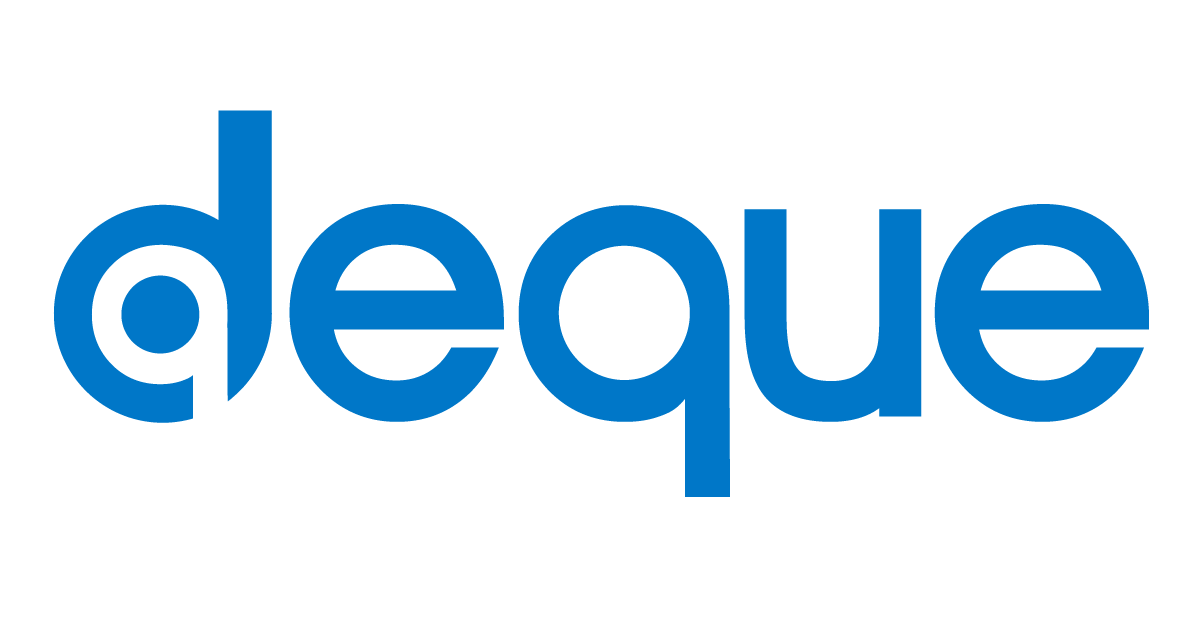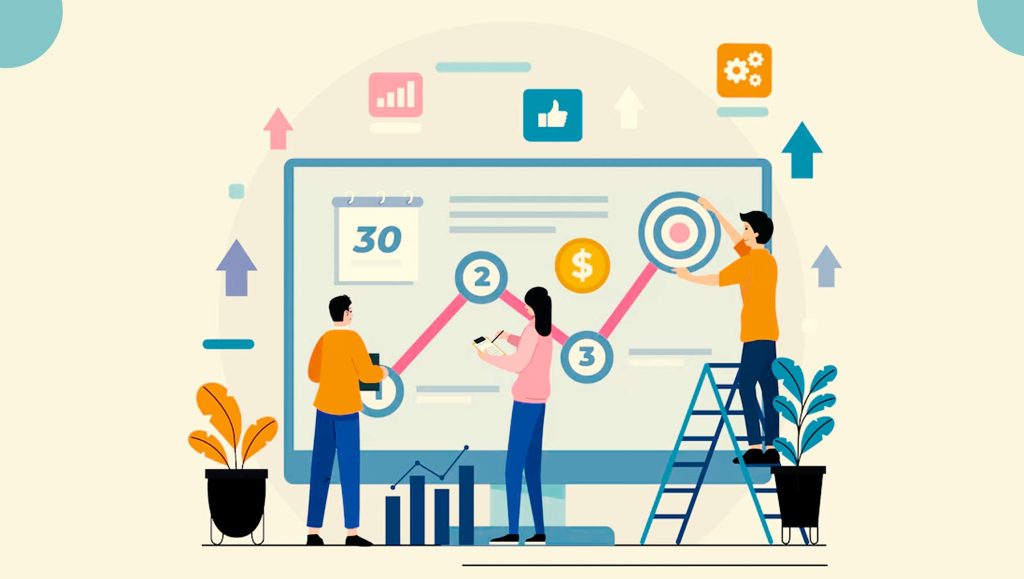Should digital accessibility norms matter more to customer-facing executives? Glenda Sims, Chief Information Accessibility Officer at Deque Systems shares her point of view:
________
Welcome to this SalesTechStar chat Glenda, tell us a little about yourself… What is it like taking over as CIAO at Deque Systems?
I am thrilled to move into this new role as Chief Information Accessibility Officer (CIAO) at Deque. After over 10 years as the Team Accessibility Lead, it feels as though I have been doing the CIAO work for years, so in some ways, this title feels like a formality. But to my surprise, I also feel exhilarated. It is almost as if I was standing on top of Mount Everest planting a Digital Equality Flag at the peak. I have never been very motivated to “climb the ladder” – instead, my focus has always been on making sure Deque is setting the standard for digital accessibility and remaining a role model for how every organization should function. As CIAO, I’ll continue driving thought leadership and innovating to improve accessibility efficiency for our customers. A lot of my focus will also be dedicated to keeping ahead of trends and motivating accessibility excellence both for Deque as well as our customers. At the end of the day, it isn’t about me. It’s about how far we’ve come in our quest for true digital equality. There are sure to be many digital experiences we can’t imagine and many more mountains to climb.
Better digital accessibility has become a need of the hour today; can you elaborate further on how you feel B2B teams / B2B brands need to be addressing this?
Digital accessibility remains a challenge every industry, organization, and business faces today. While many organizations start their accessibility journey by focusing on B2C, the need for equal access includes far more than just consumers. Your employees, job applicants, potential customers, and business partners require digital accessibility too.
Don’t let the work to be done overwhelm you. Just take a deep breath and prioritize based on the number of users (with or without disabilities) in that category + the value of that digital interface. Imagine if that digital asset was unavailable for everyone. How quickly would you get it back online? I often use IT disaster planning as my guide to which assets to make accessible first.
Our company has always been dedicated to educating others— including C-suite executives—on the importance of building inclusive digital experiences. We feel it is necessary to redefine what sustainable accessibility looks like, and that it should really be starting at the executive level. Having a dedicated Accessibility Officer, who acts as a catalyst for change and constant advocate, is the best way to continuously drive the conversation for accessible transformation. B2B brands are often the backbone of a company’s technological infrastructure, making it all the more important for digital accessibility to constantly be part of what drives innovation.
Read More: Software Users Say These Are The Top Three Retail POS Systems To Thrive In The Digital Economy
What do you feel sales and marketing teams can do to drive better accessibility norms within their organization and also for customer facing initiatives?
The quickest way to have accessible sales and marketing materials is to raise accessibility awareness with activities like an awareness lab. Once your sales and marketing teams understand the why and the how, they will be self-motivated to run simple accessibility tests, as naturally as they run spell check.
And when you emphasize that accessibility should never degrade a digital experience for people without disabilities…in fact, when accessibility is done well, the user experience should improve for all people (with or without disabilities)…I predict your sales/marketing teams will become big fans of digital accessibility because it improves their reach.
The best way to ensure accessibility is the norm is with top-down support. With strategic leadership in place and the proper guidance, sales and marketing teams can build campaigns, content, and other digital experiences that are accessibility-minded from beginning to end. One way to achieve this mindset is through educational initiatives. Flexible learning programs like Deque University offer individuals self-guided resources to learn accessibility skills for the web, document creation, and mobile content at their own pace. In addition to building a robust skill-set, it’s essential to establish empathy and understanding. What is it like for someone with a disability to use a computer or navigate a mobile website? An interactive learning experience such as the Accessibility Awareness Lab provides a great opportunity to bring an entire team together and develop insight into the experiences of users with disabilities.
We’d love to hear about some of the brands that you feel already have strong practices in place…
We’ve worked with many organizations over the years and seen numerous successful implementations of digital accessibility initiatives. For instance, Ally, a digital financial services company, recognized the importance of digital accessibility early on. The company’s mission is heavily centered around the customer experience and, “working better together.” The Ally developer team made a commitment to sustainable accessibility practices and ongoing education pivotal to their role as an “ally” to their own customers’ needs.
Other large companies like Providence Health, whose developer teams span several regions, require a unified digital accessibility vision. Different teams were approaching accessibility in different ways so, in order to mitigate the dissonance, the corporate team implemented automation across the board. Being proactive, rather than waiting for a major issue to arise down the line, and integrating new development processes is a great way for organizations to make a noticeable impact.
Peloton is a brand built on inclusivity and prioritizing the customer experience. The release of a TalkBack feature that integrates with existing Peloton equipment provides users who are blind or have low vision with audio feedback. There are different ways for brands to incorporate digital accessibility into their product or service—there is no one-size fits all solution, which makes it all the more important to have a deeply ingrained dedication to digital accessibility throughout an organization.
How can better accessibility drive end user experiences on the whole and why should sales/marketing teams pay more attention here?
Today’s businesses must recognize that having inaccessible platforms means an entire population faces a barrier to accessing content, products, or services. Investing in a robust digital accessibility initiative is critical to a better user experience. Shortcuts, overlay systems, and poor commitment from leadership within an organization will not provide the long-term solution needed to create digital equality. Ensuring accessibility is implemented across all of an organization’s digital channels is key to empowering diversity and inclusivity, and bettering the end-user experience.
While you may start your digital accessibility journey motivated to remove barriers for people with disabilities, I predict that you will discover that digital accessibility leads to innovation and a better user experience for all. When your design can withstand the loss of one of the major senses and still work, your design is better, smarter, more resilient, and cost-effective.

Deque’s uniqueness lies in its ability to provide accessibility solutions that blend the best tools that technology can provide with extensive experience and knowledge.
Glenda Sims is the Chief Information Accessibility Officer at Deque, where she shares her expertise and passion for the open web with government organizations, educational institutions, and companies ranging in size from small business to enterprise. Glenda is an adviser and co-founder of AIR-University (Accessibility Internet Rally) and AccessU. She serves as an accessibility consultant, judge, and trainer for Knowbility, an organization whose mission is to support the independence of people with disabilities by promoting the availability of barrier-free IT. In 2010 Glenda co-authored the book InterACT with Web Standards: A holistic approach to Web Design.
Missed The Latest Episode of The SalesStar Podcast? Have a quick listen here!
Episode 133: B2B Customer Engagement Best Practices with Myles Kleeger, President and Chief Customer Officer of Braze
Episode 132: Biggest B2B Sales Learnings with Astrid Boer Masle, VP of Sales, EMEA & APAC – RFPIO
Episode 131: Product Management Tips and Best Practices with Kimen Warner, VP of Product Management at Drift















